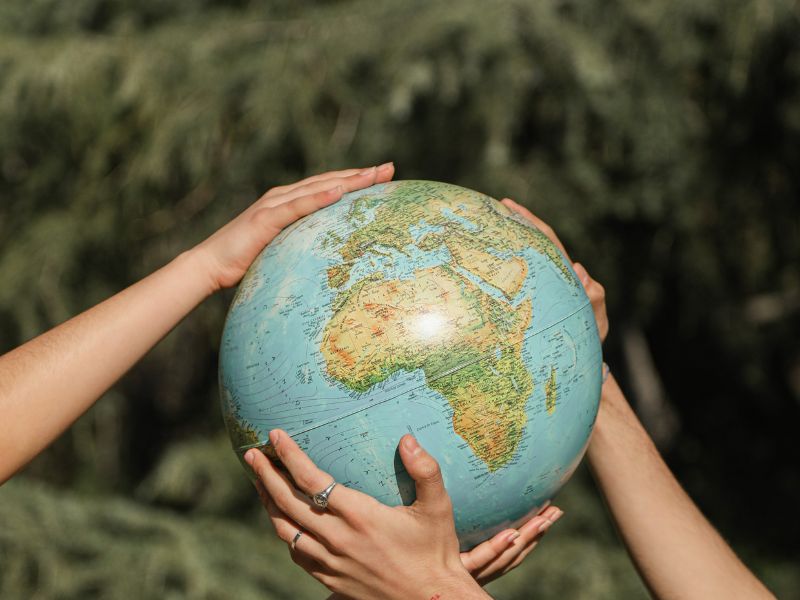Waste Reduction

Waste reduction is the practice of making less, consuming less, and inevitably disposing of less. Reduction is the ultimate goal, not only because it protects our environment from waste, but because it prevents the destructive processes of extraction and manufacturing that happen upstream of our materials.
The world’s population is growing, economies are growing, and countries all over the world are striving towards the American level of consumption. We cannot continue our rate of extraction on a planet with finite resources and few systems to efficiently reuse and recycle the resources we have already extracted.
Our most effective path towards zero waste is to reduce. Waste reduction comes in many forms:
- Just pass: The first step is to ask ourselves “Do I need it?” before purchasing or taking something. Sometimes the answer is ‘no’ and we can go about our lives without the new thing. This could be the latest model of phone when our old phone still works well, or a new wardrobe with this season’s fashions even though last season’s clothes are still in good shape. There may be many areas of our lives in which we realize that the costs of obtaining something outweigh the benefits.
- Bring your own: Reducing gets a bit more complicated when we have to figure out how to get the things we want without the things we don’t want (i.e. disposables). Oftentimes, bringing our own water bottles, containers, and food prevents us from having to buy the same items with disposable packaging.
- Go without: If we are not equipped with reusable tools, can we go without the disposable item? Is the minute of convenience that a bag provides worth having that bag in the ocean for a millennia, or can we carry four tomatoes in our hands without a bag?
- Refuse: When we are ready to go without, the next step is to learn to say no, sometimes deemed its own R for refuse. Though it can feel uncomfortable to make a fuss, little acts of courage, like politely asking a cashier to remove the plastic utensils from a take-out bag, are so important. They don’t just save an extra bit of plastic; they let businesses and other customers know that sustainability matters, and that it’s okay to care about it.
Packaging
Finding unpackaged goods is a little trickier.
Keep an eye out for unpackaged produce, which you can find at most stores, especially farmers markets. Many stores let you fill your own containers in their bulk sections. Bulk does not have to mean buying large quantities; it can mean buying in the precise quantity that you want. Make sure to weigh your container at home or ask the cashier to weigh it before you fill it, so you do not have to pay for the weight of the container.
There are also specialty stores for all kinds of package-less and bulk items. When you shop at these stores, you are not only decreasing your waste, you are also supporting brands whose values align with yours, using your money to increase low-waste options for others!
Reusables
Whether it’s paper, plastic, compostable, or any other material, we need to be moving away from single use items as a society. A big part of reducing waste is going with reusables! The next best option on the waste hierarchy, after reducing, is to reuse.
Borrowing
If it’s something you only use once in a while, we can reduce by borrowing instead of buying. We’re going all the way back to our childhood lessons when we remember that sharing is caring, and supporting a society where we have fewer things used by everyone, instead of everyone having many things that are rarely used. We have all heard of libraries for borrowing books, but did you know you could also borrow sports equipment, clothing, furniture, tools, party equipment, and so much more? Solana Center has some loan programs; check them out below.
Solana Center Services
Our Green Convene program helps you zero-waste your party. Instead of using disposable plates and forks and such, borrow our tasteful party set and enjoy your celebrations guilt free!
Need a tool but don’t want to buy an expensive piece of equipment that will just gather dust most of the year? Borrow a tool from our diverse collection of useful supplies for gardening and home projects. Check out our free Tool Lending Library.
Less or Better Packaging
Sometimes it’s just not feasible for us to get something without the packaging. In these cases we can look for items in less packaging or better packaging. Not all materials are created equal, and while everything has an environmental impact, we can opt for materials that have a lighter one.
